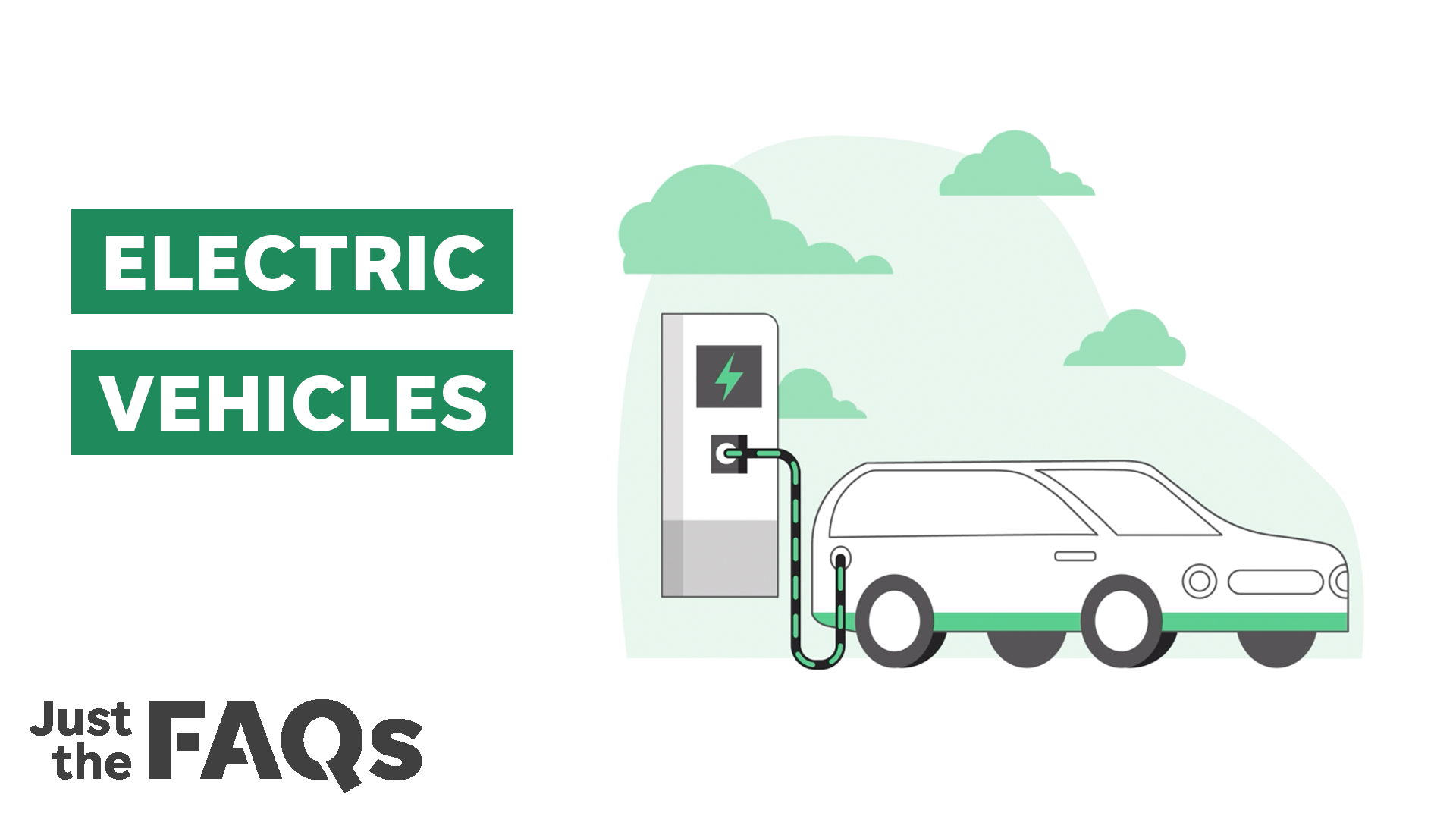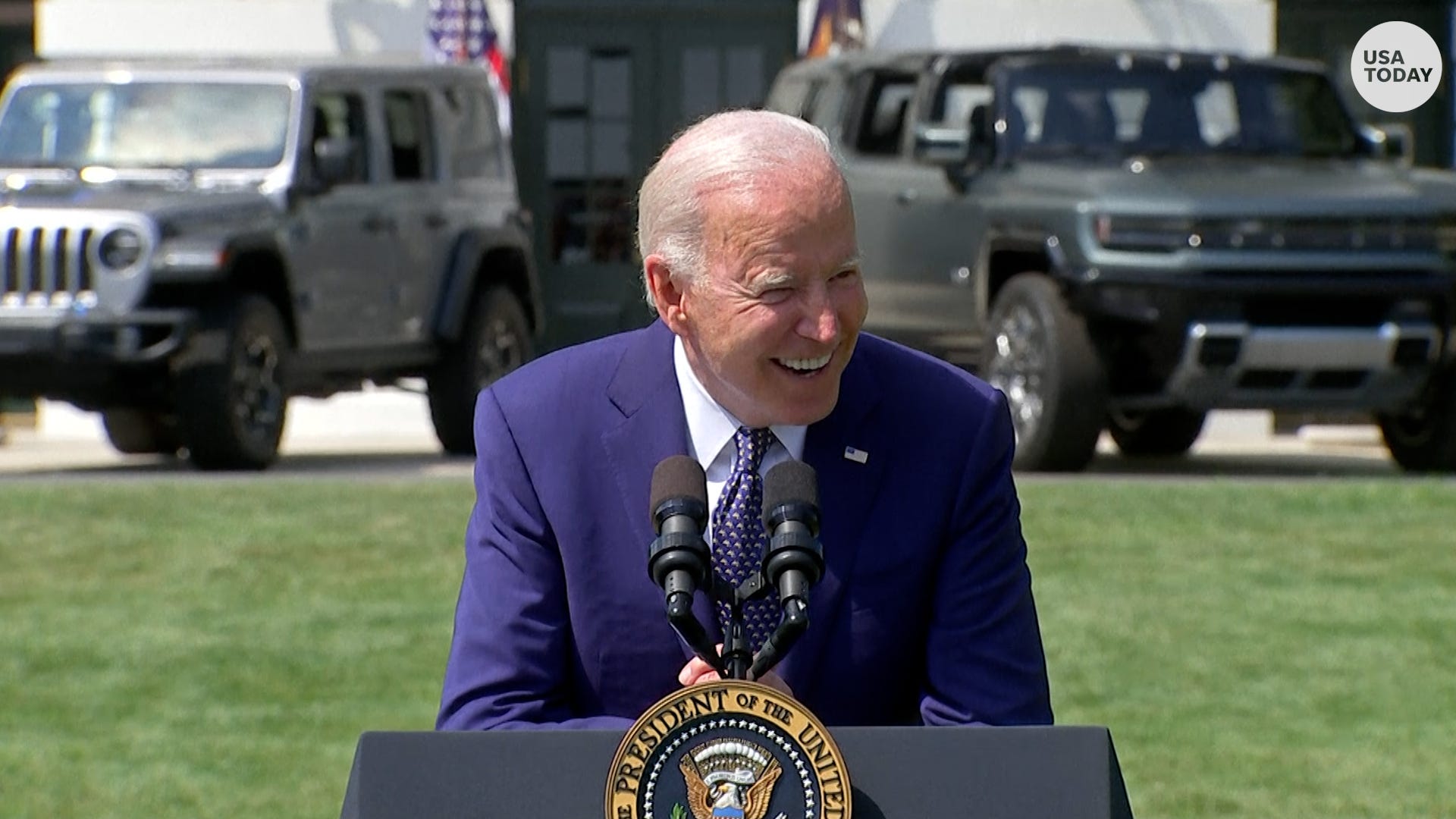I've gassed up three times since 2013. Electric cars are great, but there's a long way to go.
Joe Biden wants 40-50% of our vehicles to be electric by 2030. Electric cars are great, I have one. But there are significant downsides to his plan.

When you grow up in middle-class metropolitan Detroit, cars are in your blood. Everybody knows somebody who has either worked for a company, was on the line at any of numerous factories, is a union person or works in the many auto-supply companies that support the industry.
Even when I first moved to Washington, D.C., the auto industry remained a high priority as I staffed members of Congress from Michigan districts who spoke for droves of auto constituents and – even more – the area's ingrained car enthusiasm.
The annual trip down Woodward Avenue for its classic car “Dream Cruise” only underscores this intense love affair with cars and trucks around the Motor City. It is built into the political shape of the state regardless of race, class or political party. The auto industry is in fact religion among the faithful, almost as much as supporting the University of Michigan's Wolverines over Ohio State every November.
Even now, 30 years after leaving Michigan, that car mentality plays a role in my psyche as I work on the politics and policy issues of energy industries. With the Biden administration making such a bold effort to transform consumers’ choices away from internal combustion engines and toward electric vehicles, the car guy in all of us still has questions.
Biden calls himself "a car guy" and has jumped behind the wheel of every new electric version of old classics like the Jeep Wrangler or Ford F-150, yet his plan to transform 40-50% of our vehicle fleet to electric by 2030 remains a difficult challenge.
Why I made the switch to electric
I have driven an electric car since 2013. I like it. It is not the best, fastest or flashiest car, but driving from Annapolis, Maryland, to Washington, D.C., every day in 2012 with premium gas prices about $5.00 a gallon persuaded me to try an EV. I bought a new Chevy Volt, got the $7,500 federal tax credit, a $1,000 Maryland state credit and 0% interest.
More important, I got priority parking in my office garage and was allowed to drive in the high-occupancy vehicle lanes, skipping throngs of backups. Seems like a great deal, especially because I only have purchased three tanks of gas for my Volt since.
In fact, I liked it so much, after an accident totaled my 2013 Volt, I went back and bought another used one. Turns out, the EV didn't quite hold its value very well, but the value was still good on the repurchase. While I didn't get a federal credit, the price was still affordable.
There are numerous other benefits, too. Not only are your gas costs minimal with the Volt and other similar models and nonexistent with Teslas or other all-electrics, maintenance costs are lower as well. In addition, you really do become part of a fraternity of EV drivers who support each other on the roads and in parking garages.
Electric vehicles: Will unstable gas prices today be replaced by unstable mineral prices for batteries tomorrow?
There are also drawbacks. If you drive a lot, EVs might not be the cars for you. We have a larger SUV for longer family trips and hauling kids to sports or school. EV mileage can also vary wildly due to weather and driving style. Outside of metropolitan areas, the charging network is scattered. EVs cost more up front in most cases and, as mentioned earlier, most models don't hold their value very well.
Meeting Biden's goal with be tough
But to make Biden's proposed transformation real, we will need to do a lot more than convince consumers that they should toss out the gas cars they have loved since they first got their license.

EVs and EV batteries rely on several hard rock minerals to power them, including lithium, cobalt, graphite, nickel and copper. Unfortunately, not only do we not have enough of these materials to supply to upcoming transition, much of the development of them is under the control of our global economic competitors like China. It would be wise to address this challenge through domestic mineral expansion, international seabed mineral collection and a strengthened domestic supply chain. We must make sure no stone is unturned to meet these critical mineral needs responsibly and in a way that frees us from our reliance upon China as we compete for EV leadership.
Cars remain our lifeblood of economic freedom, yet over time, they always continue to make transformative changes from their earlier versions. Whether it is for consumer utility, safety or environmental improvement, they are constantly changing. Electric vehicles might be the next transformational change, but in order for that to happen, we must guard against the type of unintended consequences that could set the movement back.
Automakers are all talk: Biden’s new electric car goals are an Edsel masquerading as a Tesla
Consumers are a hard group to move – especially those who have little room in their family budgets for a costly transition. I know firsthand because of the car-guy, Metro-Detroit family ties that run deep in my persona. EVs can cross that divide, but they can only truly do so when they firmly overcome most of the cost and consumer challenges standing in the way.
Frank Maisano is a partner in Bracewell’s Policy Resolution Group. A Detroit-area native, he worked for numerous auto industry-centered members of Congress and Chrysler Corp., and he has represented energy sectors from oil and gas to renewables.